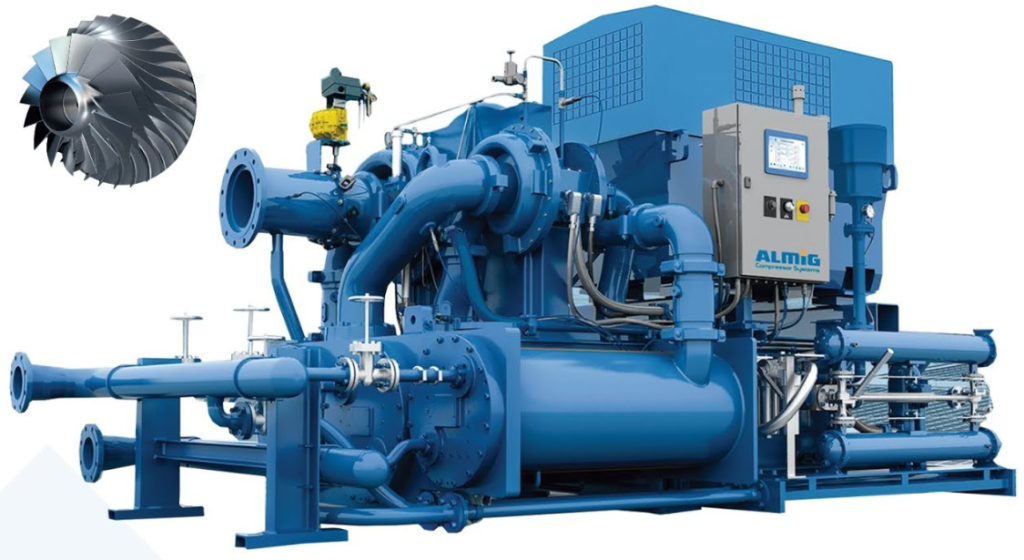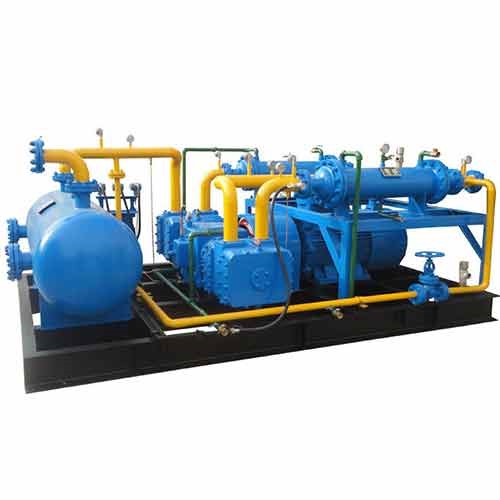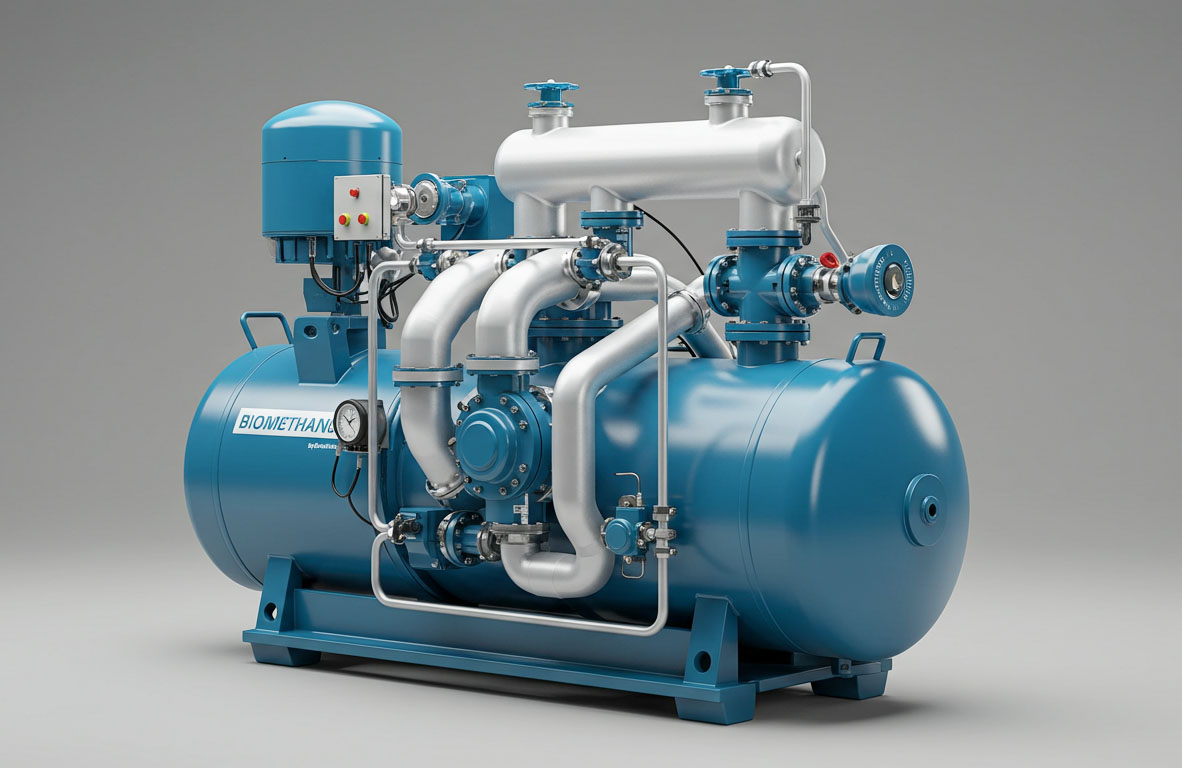Compressor LPG: Technology, Applications, and Safety

Introduction
Compressor LPG, short for Liquefied Petroleum Gas, is a versatile and indispensable energy source utilized across various industries and households. This blog post will delve into the world of LPG compressors, shedding light on their types, applications, factors to consider when choosing one, maintenance practices, safety measures, and future trends. Let’s start by understanding what LPG is and why it’s essential in diverse sectors.
LPG, often referred to as propane or butane, is a flammable hydrocarbon gas liquefied through pressurization. It is a byproduct of natural gas processing and petroleum refining. LPG is valued for its portability, high energy content, and clean-burning characteristics, making it an excellent fuel source for a wide range of applications.
LPG plays a pivotal role in multiple industries, including the petrochemical sector, oil and gas industry, manufacturing, and more. Its versatility as a fuel and energy source makes it indispensable for processes like heating, power generation, and transportation. The availability of reliable LPG compressors is crucial to ensure its efficient handling and distribution.
LPG gas compressors are vital components in the LPG supply chain. They are responsible for pressurizing the liquefied gas, allowing it to be transported and stored safely. These compressors come in various types, each with its unique working principle, advantages, and applications. Let’s explore these types in detail.
Types of LPG Compressors
- Working Principle
Reciprocating LPG compressors operate on the principle of reciprocating motion, where a piston compresses the gas within a cylinder. This compression raises the pressure and converts LPG from a gas to a liquid state.
- Advantages
Reciprocating compressors are known for their high efficiency and reliability. They are capable of handling a wide range of capacities and are well-suited for heavy-duty applications.
- Applications
These compressors find extensive use in industries like petrochemicals, where high-pressure LPG is required for various processes. They are also employed in LPG bottling plants for domestic distribution.
Rotary Screw LPG Compressors
- Working Principle
Rotary screw LPG compressors utilize two interlocking helical screws to compress the gas. As the screws rotate, they trap and compress the gas, increasing its pressure.
- Advantages
Rotary screw compressors are known for their continuous operation and low maintenance requirements. They offer good efficiency and are suitable for mid-range pressure applications.
- Applications
They are commonly used in vehicle fueling stations, where a consistent supply of compressed LPG is necessary for refueling.
Centrifugal LPG Compressors
- Working Principle
Centrifugal LPG compressors use a rotating impeller to accelerate the gas to high speeds. The kinetic energy of the gas is then converted into pressure in a diffuser.
- Advantages
Centrifugal compressors are highly efficient and provide a continuous flow of compressed LPG. They are ideal for applications requiring very high flow rates.
- Applications
Centrifugal compressors are prevalent in the oil and gas industry for transporting LPG over long distances and in large quantities.
Applications of LPG Compressors
A. Industrial Uses
- Petrochemical Industry
LPG compressors are integral to the petrochemical industry, where they facilitate processes such as cracking, reforming, and polymerization. The high-pressure LPG generated by compressors is essential for these chemical reactions.
- Oil & Gas Industry
In the oil and gas sector, LPG compressors are employed in gas processing plants to transport and store LPG for further distribution. They also play a crucial role in wellhead compression and vapor recovery units.
- Manufacturing
Manufacturing processes often require LPG for heating, metalworking, and drying. LPG compressors ensure a reliable supply of gas, contributing to efficient and cost-effective production.
Domestic LPG Distribution
LPG is widely used in households for cooking and heating. Compressors are employed in LPG bottling plants to fill cylinders with compressed gas, ensuring a consistent supply to homes.
C. Vehicle Fueling Stations
As the demand for alternative fuels grows, LPG is becoming a popular choice for vehicles. LPG compressors at fueling stations enable quick and efficient refueling, making LPG-powered vehicles a convenient option for consumers.
Factors to Consider When Choosing an LPG Compressor
A. Capacity and Flow Rate Requirements
Selecting the right compressor involves assessing the required capacity and flow rates. The choice should align with the specific application, ensuring that the compressor can meet the demand effectively.
B. Energy Efficiency and Environmental Considerations
Efficiency and environmental impact are crucial factors. Energy-efficient compressors reduce operational costs, while environmentally friendly options minimize emissions and adhere to regulatory standards.
C. Safety Features
Safety is paramount when handling LPG. Compressors should be equipped with safety features such as pressure relief valves, gas detection systems, and emergency shutdown mechanisms to mitigate risks.
D. Maintenance and Serviceability
Consider the ease of maintenance and availability of service and spare parts. Regular maintenance is essential to ensure the longevity and reliability of the compressor.
Maintenance and Care of LPG Compressors
Regular maintenance is essential to prevent downtime and maintain optimal performance. It includes tasks like lubrication, inspection, and cleaning, all of which contribute to compressor longevity.
Manufacturers provide maintenance guidelines and schedules that should be strictly followed. These schedules typically include routine checks, oil changes, and component inspections.
To extend the lifespan of LPG compressors, it’s essential to follow best practices, such as using high-quality lubricants, keeping the compressor clean, and addressing any issues promptly.
LPG Compressor Safety Measures
A. Safety Precautions for Handling LPG
Safety precautions are critical when working with LPG. Personnel should receive proper training on handling and emergency procedures, wear appropriate protective gear, and be aware of the potential hazards associated with LPG.
B. Ventilation and Gas Detection
Proper ventilation and gas detection systems are essential to prevent the buildup of LPG vapors in enclosed spaces. Early detection of gas leaks is crucial for avoiding accidents.
C. Emergency Procedures and Training
Emergency procedures must be well-defined, and all personnel should be trained to respond effectively in case of a compressor malfunction or gas leak. This includes knowing how to shut down the compressor and evacuate the area safely.
Future Trends in LPG Compressor Technology
A. Advancements in Efficiency and Energy Savings
The future of LPG compressors lies in increased efficiency and energy savings. New technologies, such as variable speed drives and advanced control systems, will optimize compressor performance and reduce energy consumption.
B. Smart Monitoring Systems for Improved Performance
Smart monitoring systems will become commonplace, allowing operators to remotely monitor and control compressors. This will enhance predictive maintenance capabilities, reducing downtime and maintenance costs.
C. Sustainable Practices in LPG Compression
Sustainability will play a significant role in the future of LPG compression. Compressor manufacturers will focus on developing eco-friendly solutions and reducing the carbon footprint of LPG compression processes.
Conclusion
In conclusion, LPG compressors are essential components in various industries, ensuring the efficient handling and distribution of Liquefied Petroleum Gas. Their significance spans from petrochemical plants to household kitchens and vehicle fueling stations. By considering factors like capacity, energy efficiency, safety, and maintenance, industries can choose the right LPG compressor for their needs.
As we look to the future, advancements in technology and a focus on sustainability promise to make LPG compression even more efficient and environmentally friendly. Encouragement for the exploration and adoption of these cutting-edge technologies will further enhance the role of LPG compressors in our ever-evolving energy landscape. Embracing these innovations will help us unlock the full potential of LPG as a clean and versatile energy source, ensuring a greener and more efficient future.


